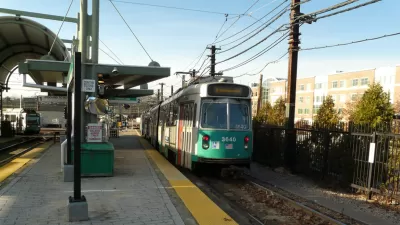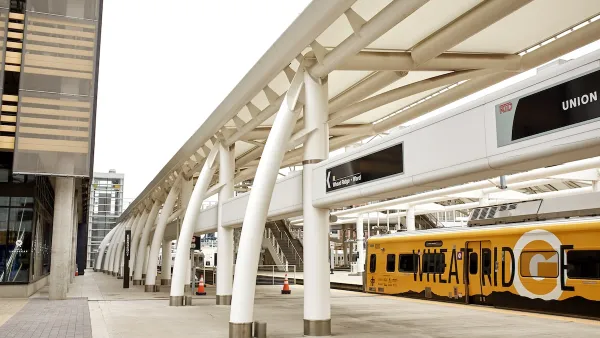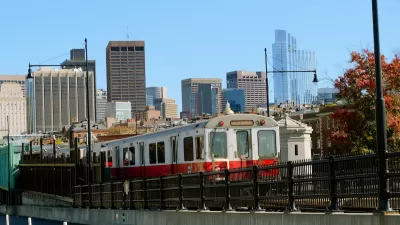Private companies involved in Boston and Denver rail travel are facing increasingly large fines for service failures, and some are going unpaid.

Many different organizations need to work together to make public transit work well, and cities provide financial incentives to make sure these organizations provide the best service possible, reports Daniel C. Vock for Governing. "But it hasn't been working in Boston and Denver lately, where the private companies running both regions' commuter rail lines have faced hefty fines for structural problems," Vock writes.
In Denver the city has been forced to hire additional personal because of technical issues. "The problem is with the crossing gates -- they stay down too long. Flaggers have been hired at crossings to make sure impatient drivers and pedestrians obey the gates and don't go around them," Vock reports. The city has looked to pass these costs back to its supplier.
Boston has also faced issues with Keolis, the company under contract to run rail transit there. "The biggest controversy has been about the fines the company hasn't paid. The Boston Globe recently reported that MBTA waived $839,000 in fees incurred for widespread problems on Keolis’ commuter rail service during the winter of 2015," Vock says. These fines were waved because of the extreme weather the city faced during that winter, but other fines continue to mount for the company.
FULL STORY: Private Companies Face Big Fines for Commuter Rail Problems

Planetizen Federal Action Tracker
A weekly monitor of how Trump’s orders and actions are impacting planners and planning in America.

San Francisco's School District Spent $105M To Build Affordable Housing for Teachers — And That's Just the Beginning
SFUSD joins a growing list of school districts using their land holdings to address housing affordability challenges faced by their own employees.

The Tiny, Adorable $7,000 Car Turning Japan Onto EVs
The single seat Mibot charges from a regular plug as quickly as an iPad, and is about half the price of an average EV.

Seattle's Plan for Adopting Driverless Cars
Equity, safety, accessibility and affordability are front of mind as the city prepares for robotaxis and other autonomous vehicles.

As Trump Phases Out FEMA, Is It Time to Flee the Floodplains?
With less federal funding available for disaster relief efforts, the need to relocate at-risk communities is more urgent than ever.

With Protected Lanes, 460% More People Commute by Bike
For those needing more ammo, more data proving what we already knew is here.
Urban Design for Planners 1: Software Tools
This six-course series explores essential urban design concepts using open source software and equips planners with the tools they need to participate fully in the urban design process.
Planning for Universal Design
Learn the tools for implementing Universal Design in planning regulations.
Smith Gee Studio
City of Charlotte
City of Camden Redevelopment Agency
City of Astoria
Transportation Research & Education Center (TREC) at Portland State University
US High Speed Rail Association
City of Camden Redevelopment Agency
Municipality of Princeton (NJ)





























